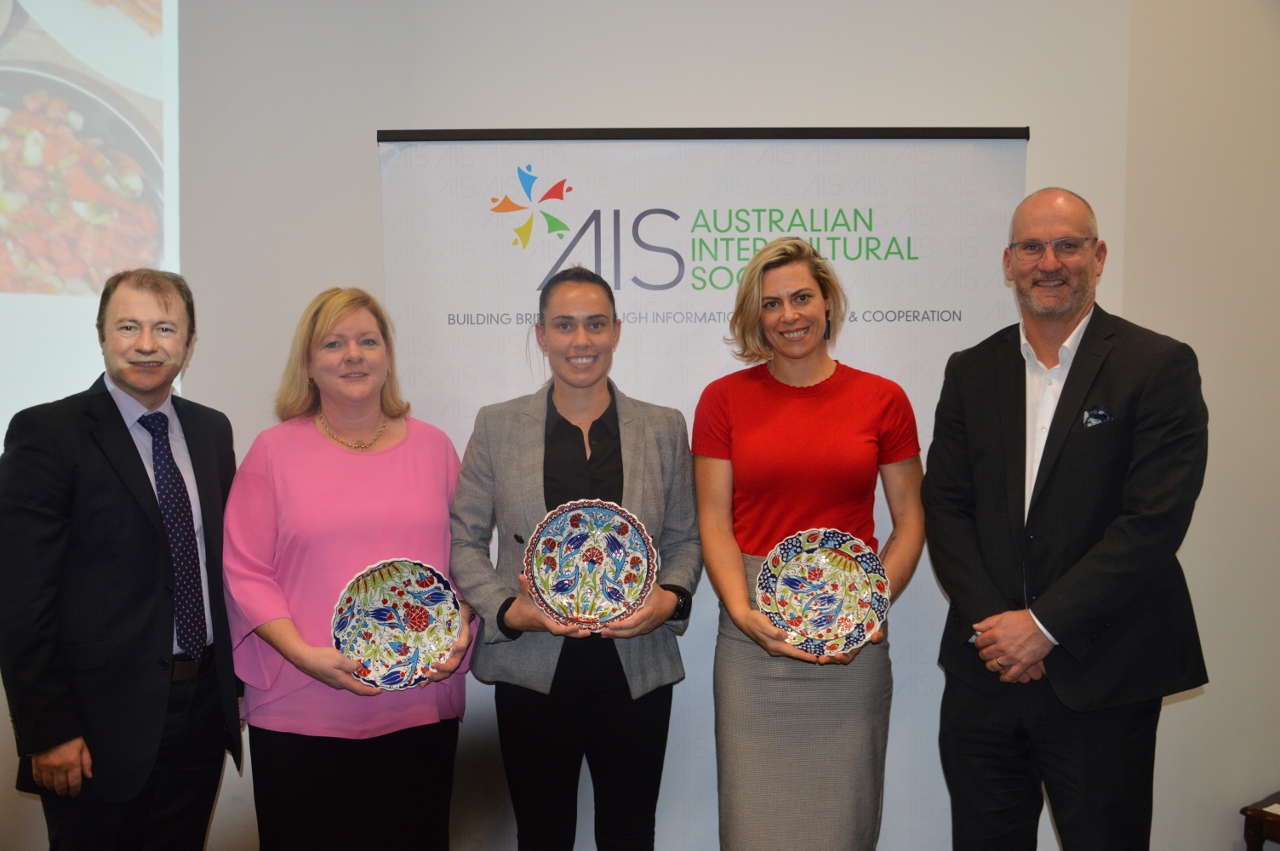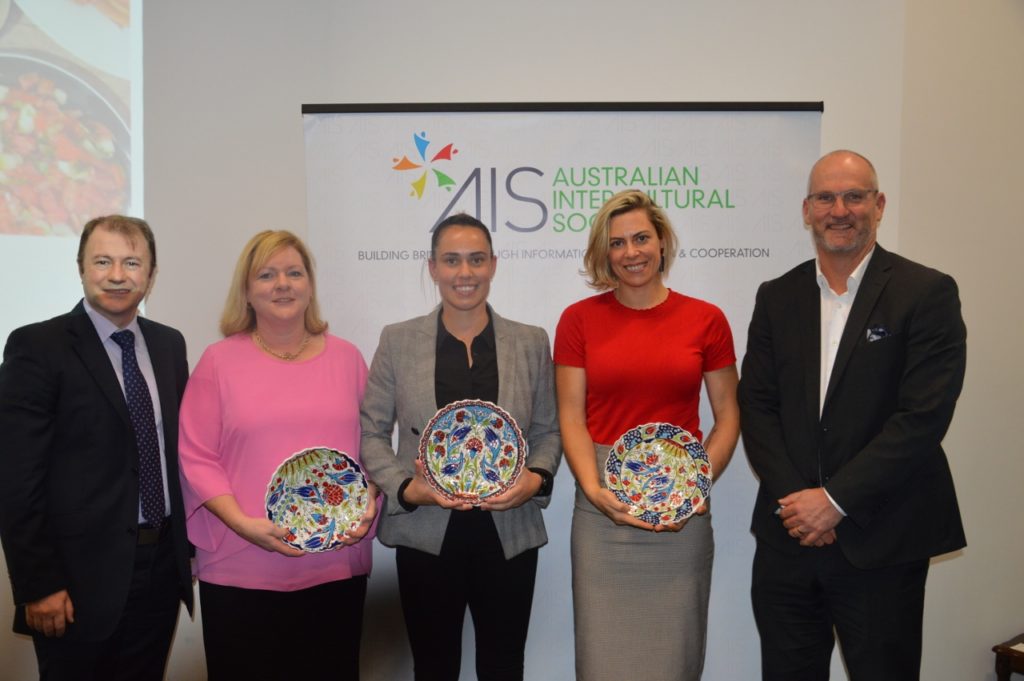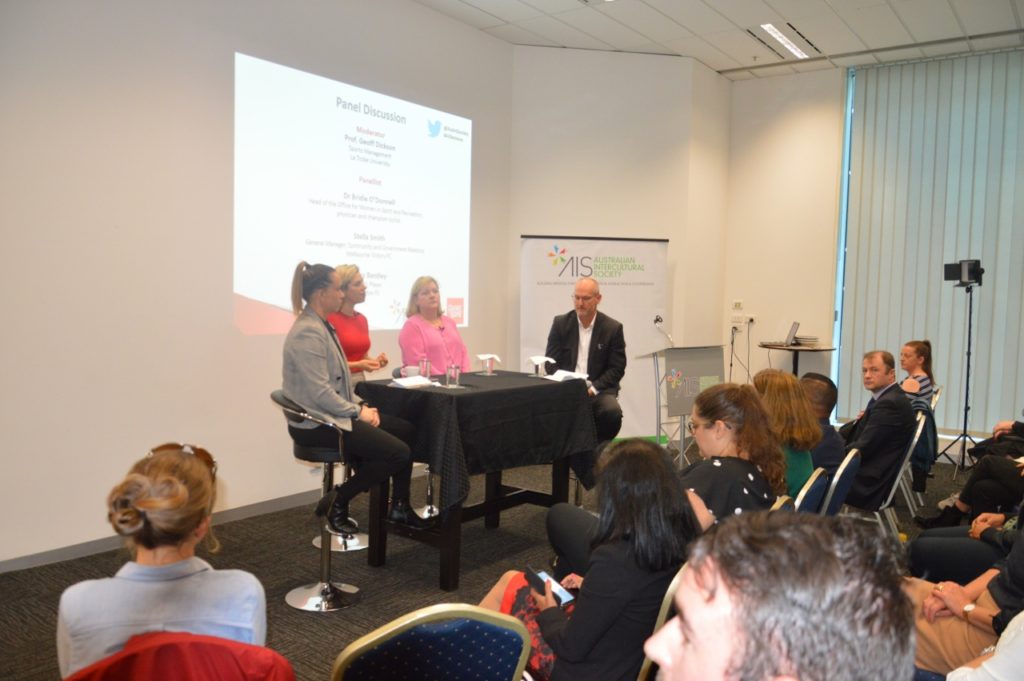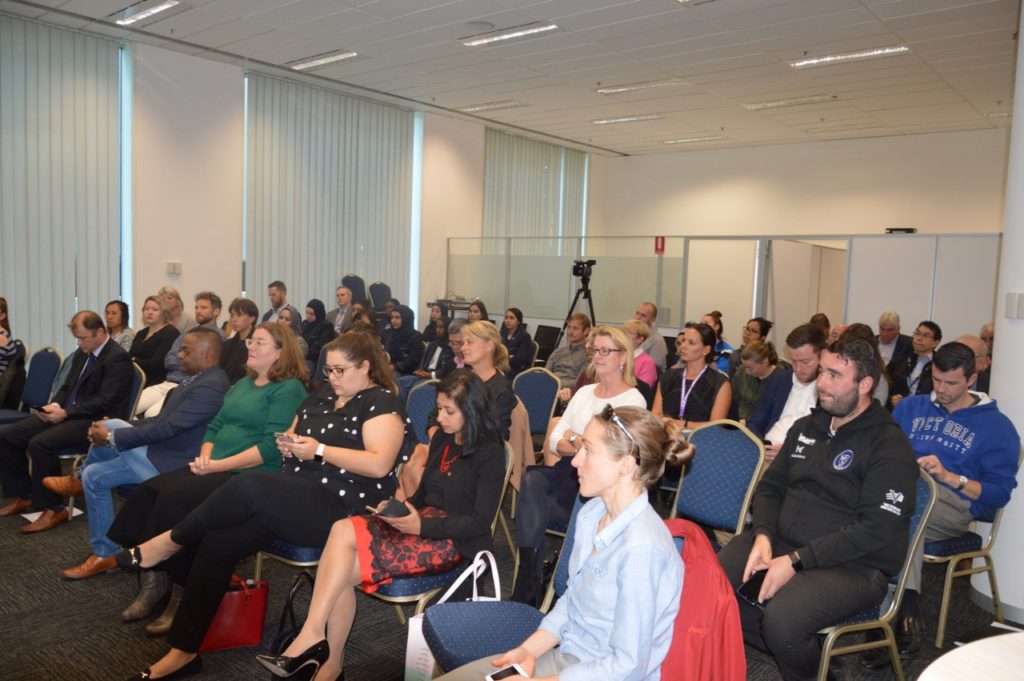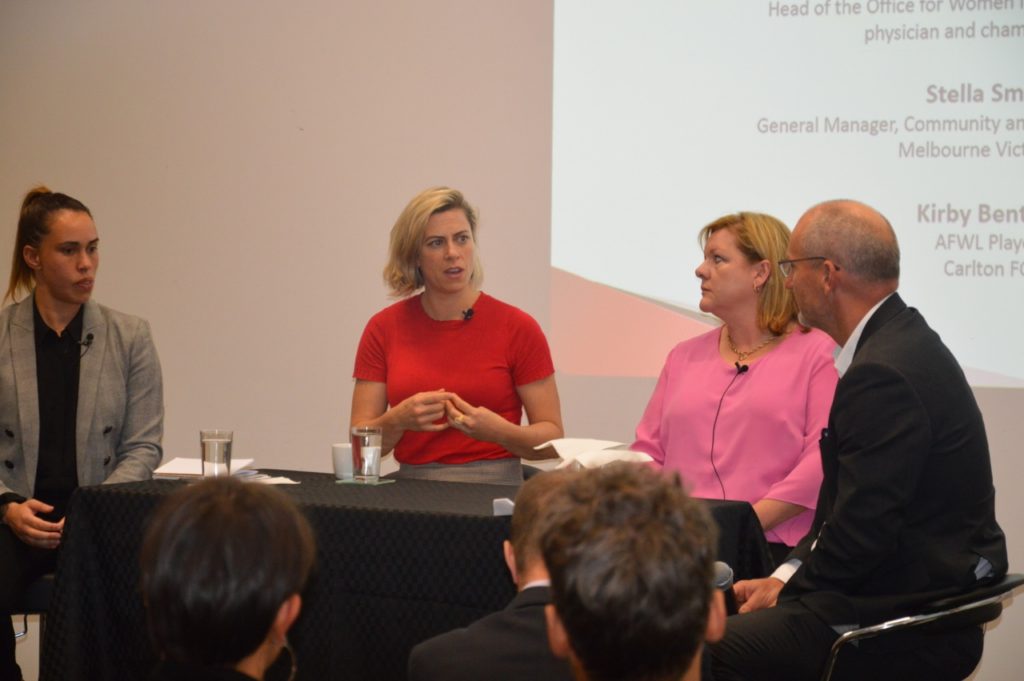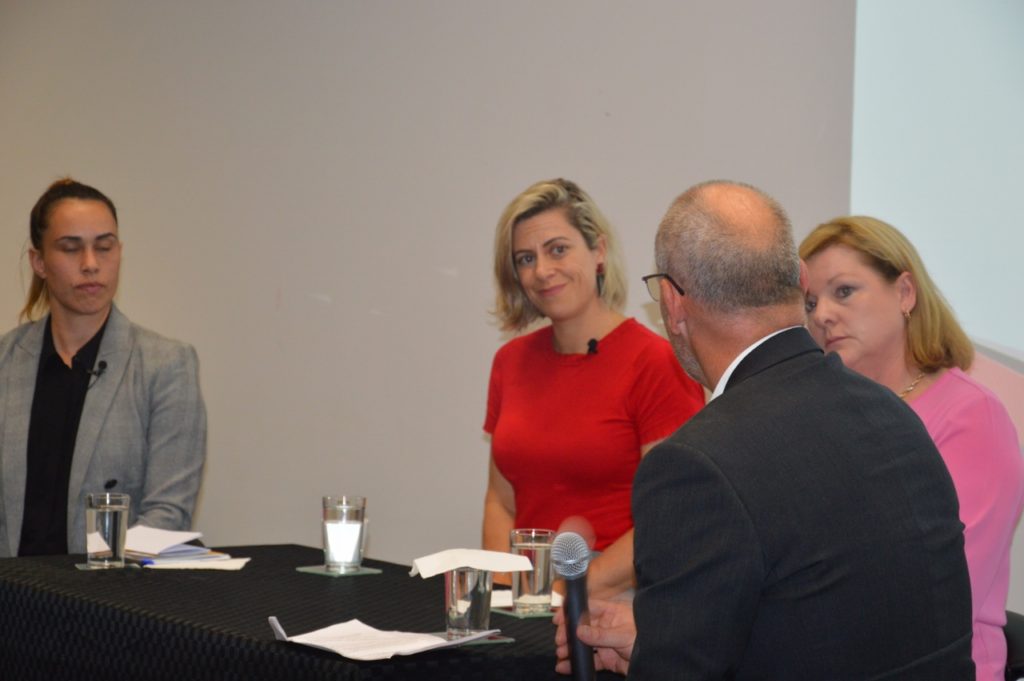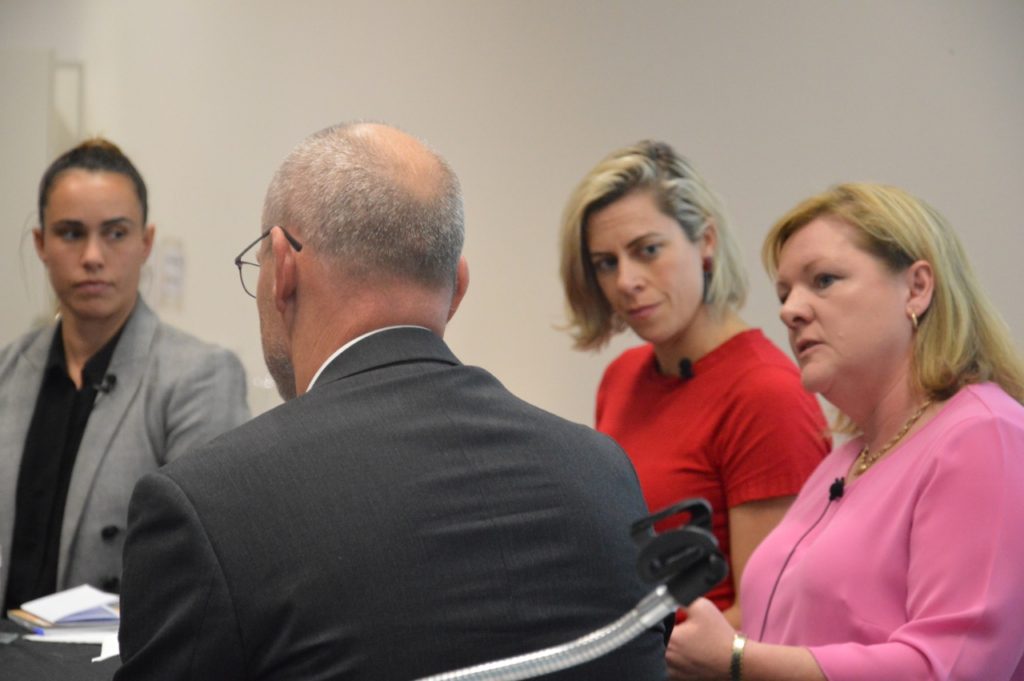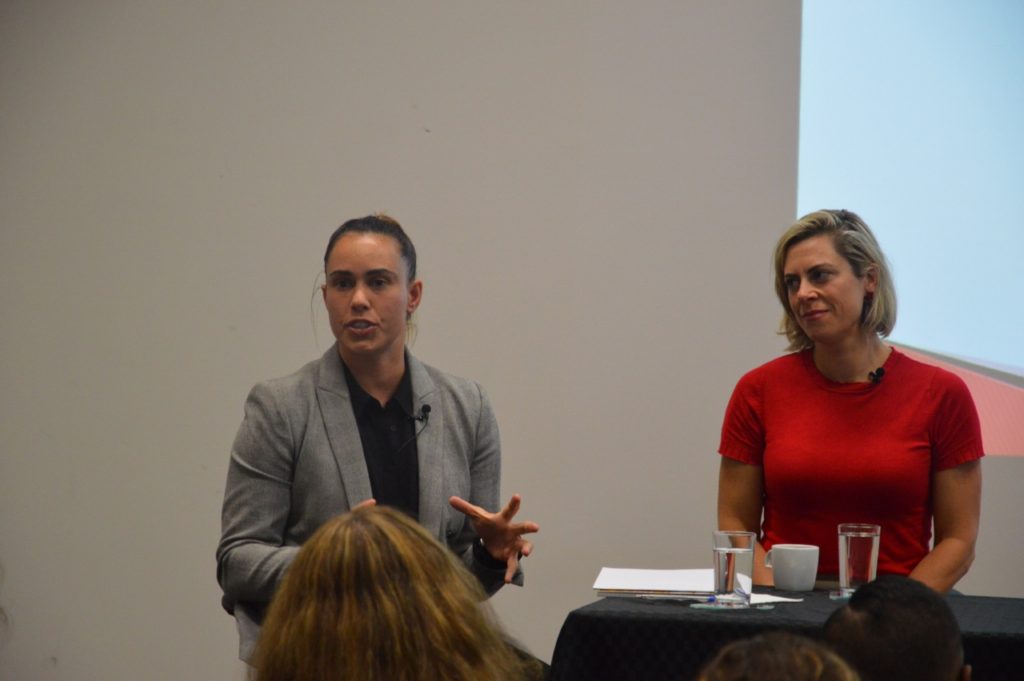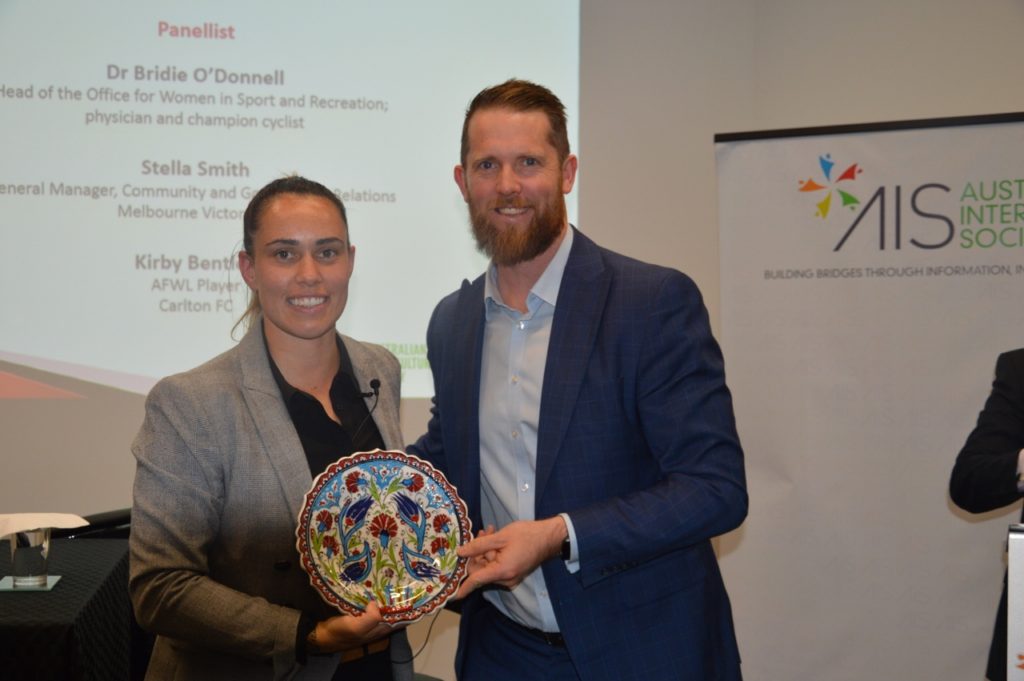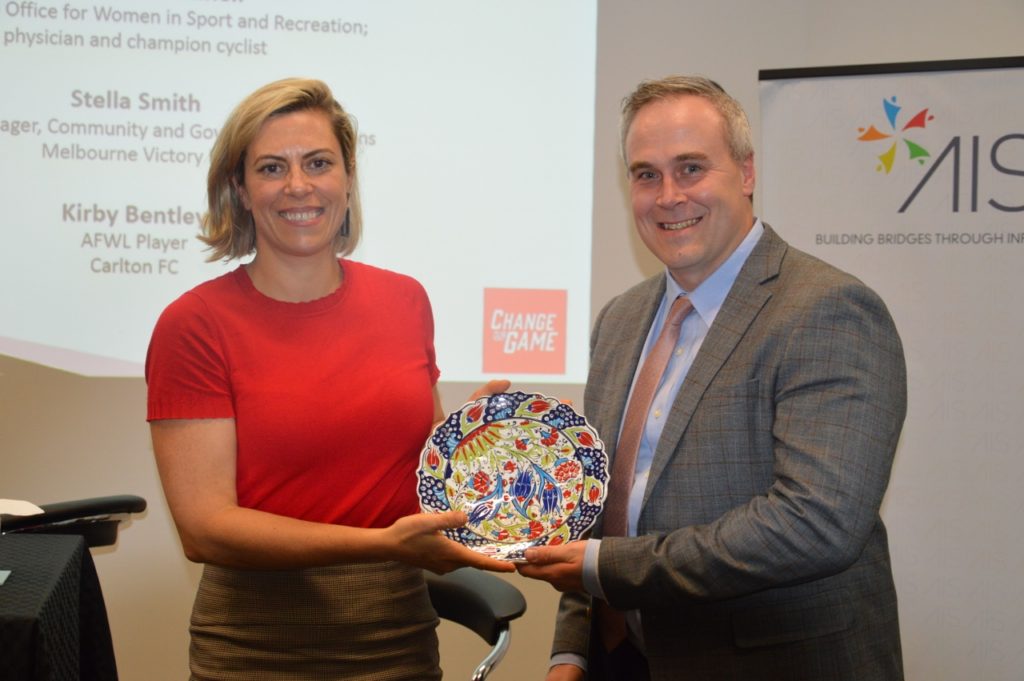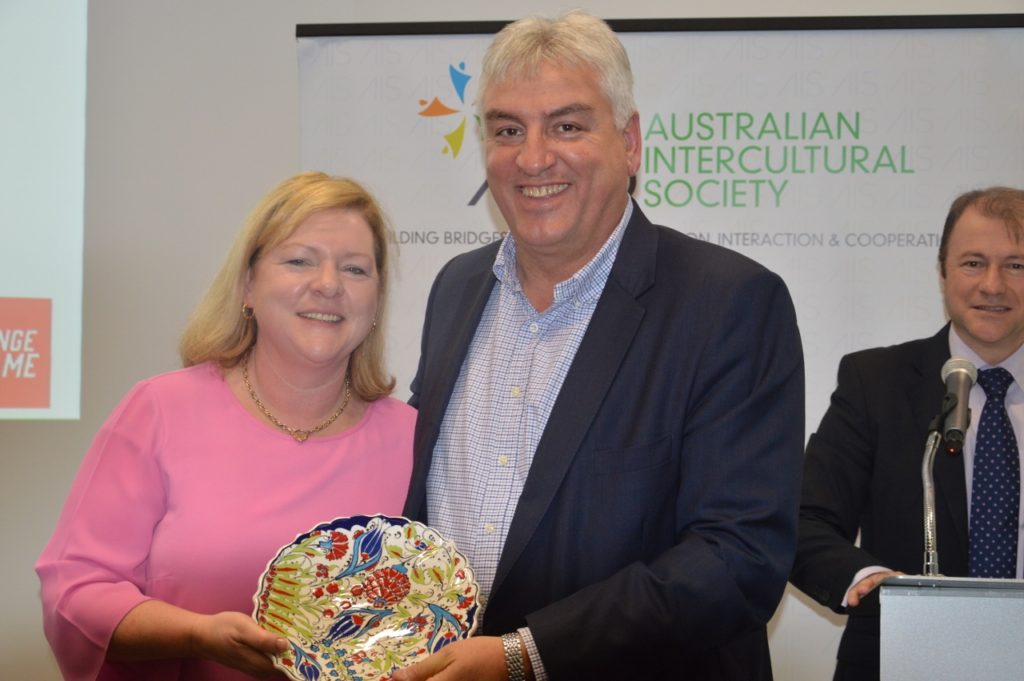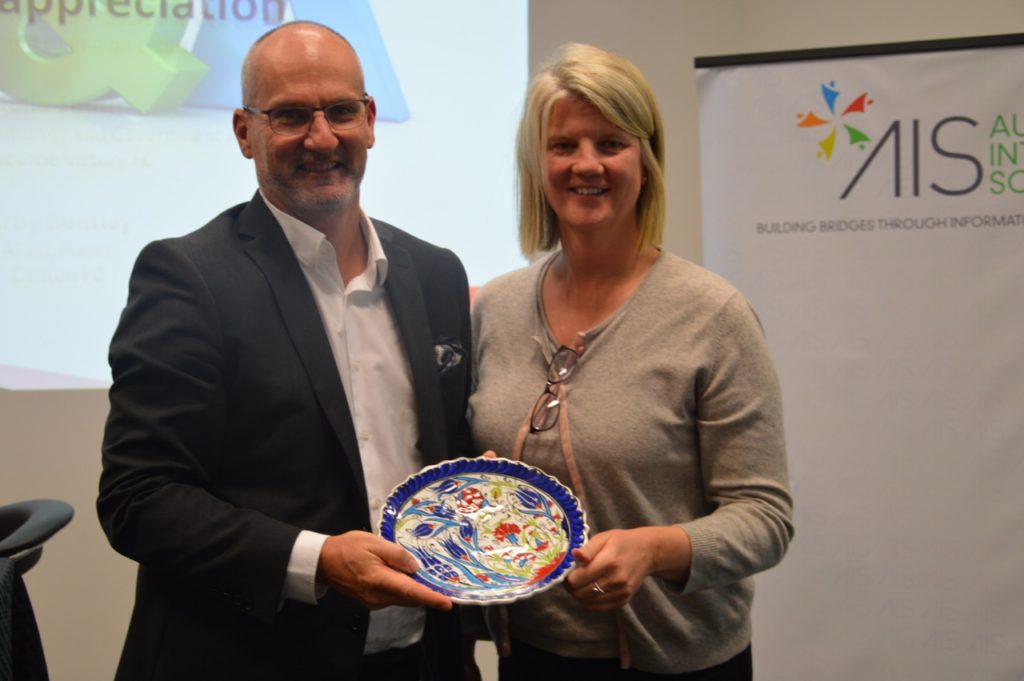Change our Game: Women in Sport Panel
On Wednesday, 8 May 2019, the Australian Intercultural Society held a “Women in Sport” Panel in support of the Change Our Game initiative that aims to raise awareness and initiate change for inequality in the world of sport.
The panel was moderated by Prof Geoff Dickson, from Sports Management at La Trobe University and consisted of the Head of the Office for Women in Sport and Recreation, Dr Bridie O’Donnell, General Manager for the Melbourne Victory FC, Stella Smith, and Carlton FC player, Kirby Bentley.
The panel began with a simple question, “What are you trying to achieve?”, to which Bridie took the reins of the conversation and began by saying “we like to pride ourselves in Australia of giving people a fair go, doing things fairly. We like to think that sport is fair. It’s not though, because some people are born with better DNA than others and others are born with different opportunities and different backgrounds…we need to extend equity to those who haven’t had the same opportunities”. This sparked an interesting and well thought out conversation on inequality in the world of sports in Australia.
Many view females in general as weaker, softer spoken, and more warm than males, especially when it comes to sport. However, Bridie makes a point to highlight the female athletes she knows as “equally ruthless, ambitious, aggressive, dedicated, [and] desperate”. This blurs the line between male and female athletes in the sense that there is no gender that tries harder or is more deserving of their success. She even draws attention to the fact that women almost need to try harder in order to be successful in the field. They face discrimination every day, especially in a male dominated environment. She talks about bringing women up rather than tearing them down. “When you tell a man he’s fat, he says ‘yeah I’m fat’. When you tell a woman she’s fat she thinks ‘that means I’m no good, I’m unattractive, I’m not worth anything in society.’… language matters”, says Bridie. We need to be aware, as a society, of the way we communicate and encourage our fellow citizens, athletes, and human beings. She addresses the idea that Australia as a whole needs to offer more aid to those who do not have the genetic or economic privileges that others do, as that does not determine their athletic worth. For example, It is more difficult for Aboriginals to achieve success in the AFL, strictly because it is more difficult for them to even get to practices or obtain the opportunity to do so.
Stella builds off of this idea while calling attention to the benefits that sport has on any human being, but especially females, both mentally and physically. She claims “sport shouldn’t mind where you come from. It shouldn’t mind that your political views are different, that your religious views are different.. And when you say [they] joined a team, they’ve suddenly found something that they have in common with others… they get a sense of belonging”.
This sense of belonging is evident in AFLW player, Kirby Bentley. Coming from an Indigenous background, it was extremely difficult for her to achieve the success that she has in this field, and speaks of her desire to help others follow her path. “Sport has always been my go to, my safety, and thats all I’ve ever loved doing” says Kirby. “So for me to be able to play at this level, I’m creating a platform that helps pave the way for the next generation”. She calls attention to the AFL’s desire for a diverse membership, but points out that it is on them to create this, stating “if you want different, you invite different”.
Kirby also brings up her fellow female athlete Tayla Harris in regards to her tweet responding to the backlash she receives from “trolls” on the internet every day. The tweet was a photograph of her mid game and reads “Here’s a pic of me at work… think about this before your derogatory comments, animals”. The photograph features her in a position that not many could achieve in the middle of a significantly “athletic” play, and draws attention to the mistreatment of women in sport on a daily basis. The tweet got international attention and Kirby spoke of her unwavering support of her fellow athlete.
There was a lot of talk throughout the panel of the “sisterhood”. This refers to the population of women, especially in sport, who support each other. While it is the sisterhood’s responsibility to speak up for themselves and incite change, Bridie brings up a good point about assigning responsibility solely to women to make this change. “Let’s not throw all of this on the sisterhood, the sisterhood is already stepping up. We’re working real hard. [Today] 96% of CEOs in sport across Australia are men. Sisterhood has stepped up as far as they can step up…we think of sports as being binary. There’s a winner and a loser. But actually in life, it is not that way. There are all sorts of people in this grey area who are supportive but are also thinking about themselves and their own lives.. So I don’t want you to focus on the sisterhood”. She calls for everyone, men and women, to support their fellow athletes in that sense, and to change the mindset of sport all together. “We need to shift our mindset from thinking that the default is men”, says Bridie, to which Stella followed up by saying “We’re men and women, but we’re one club”.
This panel was a truly inspirational call to action in terms of equality in the world of Australian Sport and to provide more diversity in the management of sports to provide a balanced focus on catering for the needs of gender and people from diverse backgrounds.

